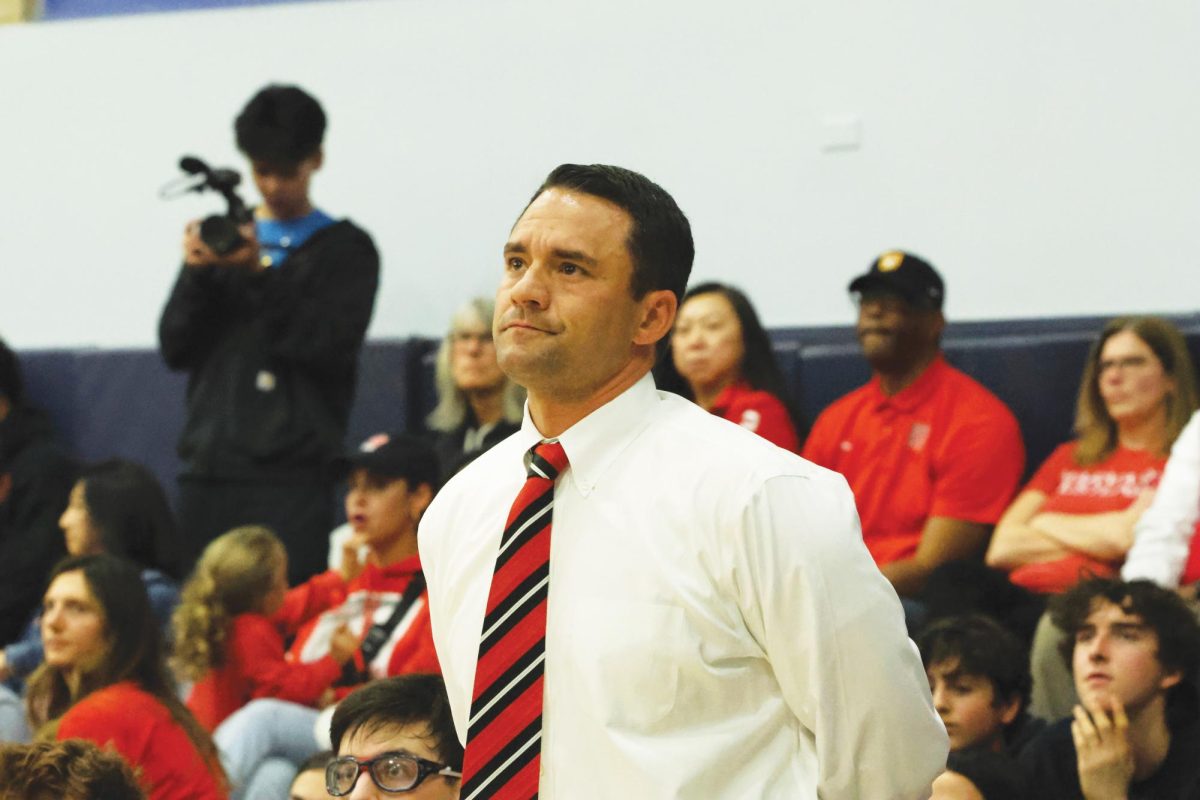Of 389 students polled in a Chronicle survey, 65 percent use online reading aids like SparkNotes and Schmoop, both of which provide chapter summaries for books commonly read in English classes as well as analysis.
Thirty-one percent of these students use reading aids instead of doing reading assignments, while 61 percent use them with reading and 71 percent only use them to review plot points for final exams.
Booker* ’15 is one of these students, often using reading aids to supplement his reading, and sometimes using chapter summaries when he’s short on time.
“I don’t think it’s cheating,” he said. “I mean, it’s not like you’re cheating on a test where you have actual answers. That would 100 percent boost your grade. But this is like basically reading the cover of a book or the backside of a book, where it says some dumbed-down plot.”
Turner* ’14, who uses reading aids only for final exam review, also doesn’t think he’s cheating, even though he acknowledges that such resources are banned.
“They can’t expect everyone to reread the books before the final to review, so I don’t think there’s anything wrong with it.”
English teacher Isaac Laskin ’98 thinks otherwise.
“It’s a violation [of the Honor Code],” he said. “It’s unambiguous.”
To explain the English department’s policy on SparkNotes, he simply said, “Not allowed.” This included using reading aids as supplements to actual reading and for final exam review. Booker thinks using online reading aids has helped his grade in English through reading quizzes and increased participation in discussions.
Other students who use online reading aids, however, are less eager to say it has helped their grade.
Turner said they might have helped him “maybe because I did better on multiple choice on finals, but it hasn’t really affected my essays at all.”
Ryder* ’15 doesn’t get many reading quizzes, so reviewing with online chapter summaries after he has done his reading hasn’t raised his grade, he said. Ryder was having trouble with Nathaniel Hawthorne’s “The Scarlet Letter” when he looked it up online. Since then, he said, he’s become a more active participant in class. Now, he uses Schmoop with his reading regularly.
“I’ve asked [my teachers] in the past about SparkNotes, and they said it’s fine as long as I don’t use it instead of reading and take their ideas,” Ryder said. “I think it’s fine because you’re doing what you signed up for, and you’re going above and beyond to understand it.”
Online guides don’t seem to help much with analysis, even if they do with plot points.
“A savvy user of SparkNotes might be able to steal things that sound smart in essays, but it’s not going to help you close-read,” Laskin said.
Students agreed.
“The couple times I glanced at it, it was a very simplified analysis so it was pointless to look at,” Turner said.
Reed* ’15, who used SparkNotes instead of reading much of Kazuo Ishiguro’s “Never Let Me Go” last year, acknowledges that summaries usually lack details.
Ryder thinks reading summaries without the actual reading is dangerous.
“If you only read the analysis in the summary, you’ll take that analysis as a fact, and it’ll bleed over [into your writing],” he said.
Junior prefect and head prefect elect Sarah Winshel ’15 doesn’t use online guides because she enjoys reading assignments, but she said she understands why a majority of students would use them. She’s never sat on an Honor Board case concerning a student who hadn’t done the reading, though she has seen plagiarism from online resources.
“I could imagine if you go online and you see something that’s said exactly how you want it, … sometimes students will take bits of analysis from online and put it in their papers,” Winshel said
Though both of her English teachers this year and last year did not allow online reading aids at all, Winshel said she thought policies differ from teacher to teacher. Laskin, however, said the no-reading aids policy is a department-wide one.
“In a perfect world, they should absolutely say that [SparkNotes] can be used as a supplement,” Winshel continued. “My concern if they change their policy, though, would be that … it might be a slippery slope. I would be hesitant, but I think it could definitely be a conversation in the department, if it isn’t already.”
A different member of Prefect Council uses SparkNotes to review characters before finals, they said, but not for essays or instead of reading. They agree with Winshel that students should be able to use reading aids as long as they do the actual reading, but think the English department’s policy should not change.
Though department policy prohibits even supplementary use of reading aids, the circumstances under which Laskin would report students to the Honor Board for using reading aids are plagiarism and clear evidence of using reading aids instead of the reading, he said.
When some of his students answered quiz questions in a way that suggested but did not show that they had been using SparkNotes, for example, by mentioning characters who would only appear 100 pages ahead, Laskin confronted the whole class about reading aids, but did not report anything to the Honor Board.
“Not that I condone [cheating] by any means, but I do think that that’s a reality of Harvard-Westlake, so if as a prefect I tried to go after every instance of it that I heard, I don’t think that would be a reasonable thing to do, and because of the culture of this school, I don’t think that would be a fair thing to do.”
“I don’t think people are cheating more or less,” Reed said about the record low number of Honor Board cases this year. “They’re just getting better at it.”





































